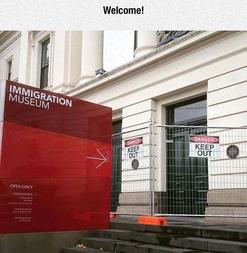
The biggest issue affecting us is my daughter's education. Korea is a country that is held hostage by its university entrance exam, the KSAT. I remember working with high school English teachers in Daegu a couple of years ago and showing them some student-centered lesson ideas. They loved them but told me that they would never be able to use them in class. "They won't help the students on the test," they said. "The parents will kill us."
The test stifles practical learning opportunities and breaks education down to multiple choice answers. Life doesn't work that way but it sure does make it easier to grade. Another major issue with the test is that it is a "one and done" test. Unlike the SAT, which can be taken multiple times in a year, the KSAT is only held once a year and students who wants to improve their score have to take a whole year off. Sure, I'd like to convince more universities to place less value on KSAT scores and emphasize essays, interviews, and extracurricular activities but that would require getting them all on board and that is unlikely to happen. The quickest fix would be to offer the test two or three times per year. Yes, it will cost money and take time to create more versions of the test but since change takes time, I'd like to see the KSAT offered more than once a year by the time my daughter is in high school. I don't know if this will reduce the importance of "teaching to the test" that begins in middle school but baby steps are still steps in the right direction.
Two other issues affecting Korea today are a low birth rate and difficulty enforcing laws focused on the behavior of citizens and residents. I have two ideas to counter these problems. One: require women to perform two years of civil service similar to what Korean men have to do as their military service. These women would be tasked with enforcing laws such as the ban on speaker trucks, keeping scooters off the bicycle paths, and fining people for smoking in no smoking areas (basically the issues the police are "too busy" to actually police). Women would be required to fulfill the service before the age of 25 UNLESS they have a child. This, in theory, could be a gentle nudge to help increase the birthrate while addressing complaints from men that they are required to serve their country and women are not.
Another way to increase the birthrate in Korea is to encourage immigration. Immigration is a tricky issue because of Korea's history and reputation as the "Hermit Kingdom". However, Korea is changing whether people like it or not and if more people from other countries continue to move to Korea then Korea needs to welcome them accordingly. Government offices should be the first place to offer more multi-lingual options. Korea Exchange Bank (oops, KEB/Hana Bank) has been one of the leaders in offering multiple language options to its customers. I believe the immigration office also does a decent job of this. It would be nice if the insurance, pension, tax, and local government offices followed suit.
Finally, and I know this is a minor thing, I'd like apartment buildings and government offices to stop making announcements over loud speakers. When the Korean War ended, South Korea was supposed to be the democratic and free Korea but unwelcome announcements at all hours of the day make it feel like we're on the other side of the DMZ. This is the age of emails and text messages. Why can't we sign up for announcements to be sent to our devices? This is an issue that could have and should have been resolved years ago.
If you have read this far, you might get the impression that I'm not a fan of Korea. Not true. I have lived in Korea for 16 years and I enjoying living here very much. However, no place is perfect and these suggestions are my way of trying to make a good place even better. I try not to complain about things unless I have an idea in mind for how to make them better. No solution is perfect and I understand that all of these suggestions have pros and cons. If I have any facts wrong please leave a comment and correct me.
I think it is important to start a dialogue about these issues because I would like to keep living in Korea and I hope that when its time for my daughter to go to middle school and high school Korea is a country where she can get a solid secondary education, the people who live here have a little more "healthy fear" about following the rules, and we can live in harmony with our neighbors (Korean and non-Korean alike).

 RSS Feed
RSS Feed